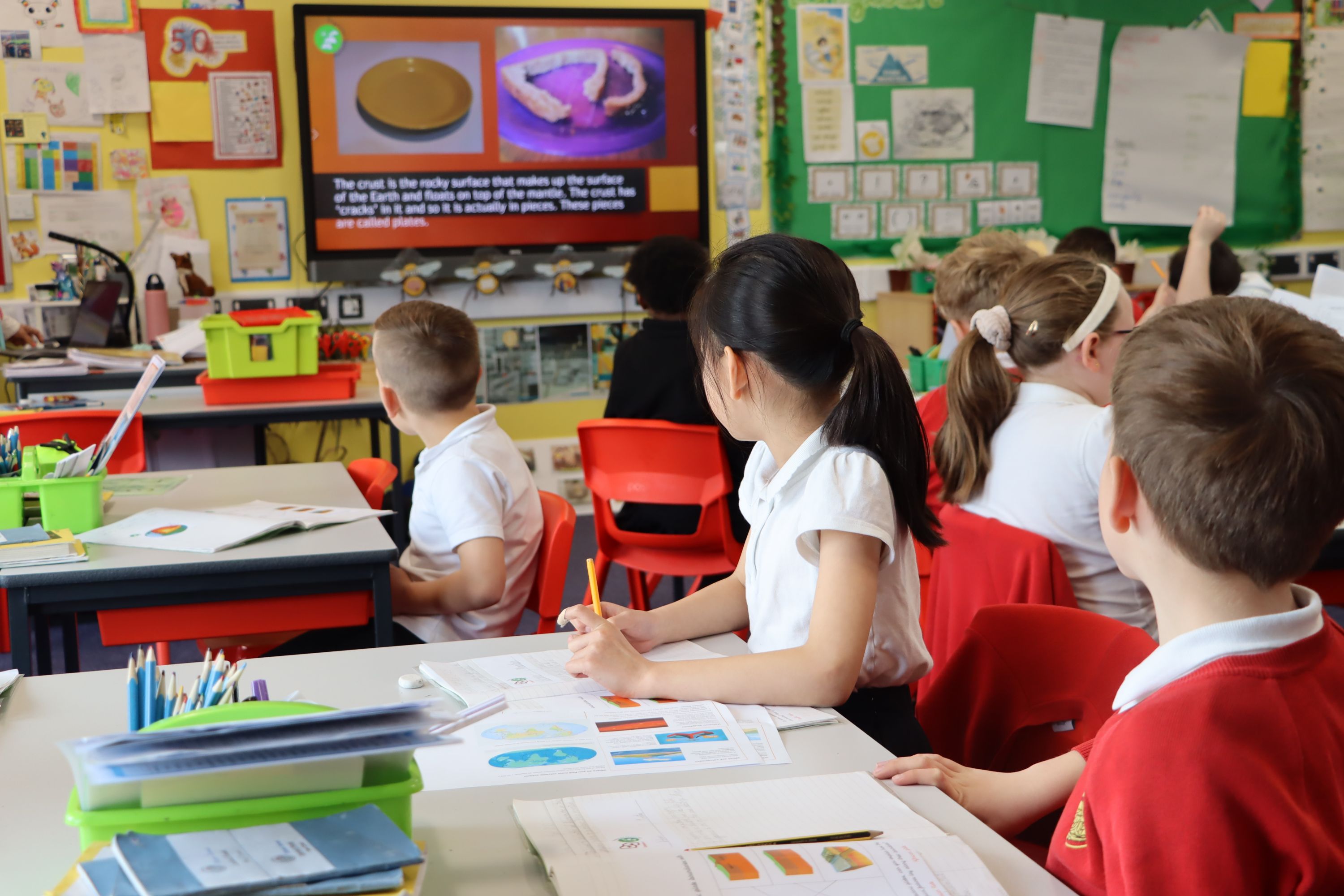Geography
Subject Leader: Mrs B Kaur - kaurb@saintgeorgescofe.kent.sch.uk
High-quality geography education should inspire in pupils a curiosity and fascination about the world and its people that will remain with them for the rest of their lives. Teaching should equip pupils with knowledge about diverse places, people, resources and natural and human environments, together with a deep understanding of the Earth’s key physical and human processes. As pupils progress, their growing knowledge about the world should help them to deepen their understanding of the interaction between physical and human processes, and of the formation and use of landscapes and environments. Geographical knowledge, understanding and skills provide the frameworks and approaches that explain how the Earth’s features at different scales are shaped, interconnected and changed over time.
Intent
At Saint George’s Primary Phase, we aim for Geography to be understood, enjoyed and celebrated. Topics are informed by the national curriculum and linked to the Quigley Essential Curriculum, as well as to the local area and wider world. The Geography curriculum at Saint George’s is planned and structured to ensure that the school’s approaches are informed by current pedagogy. In our Geography curriculum, we strive to create opportunities which will inspire in pupils a curiosity and fascination about the world and its people that will remain with them for the rest of their lives. In line with the National Curriculum 2014 and Quigley’s Essentials Curriculum, at Saint George’s we aim for all pupils to:
- Be equipped with knowledge about diverse places, people, resources, and natural and human environments.
- Contribute to a deep understanding of the Earth’s key physical and human processes.
- Explain how the Earth’s features at different scales are shaped, interconnected, and change over time.
In this way they will:
- Develop contextual knowledge of the location of globally significant places
- Understand the processes that give rise to key physical and human geographical features of the world
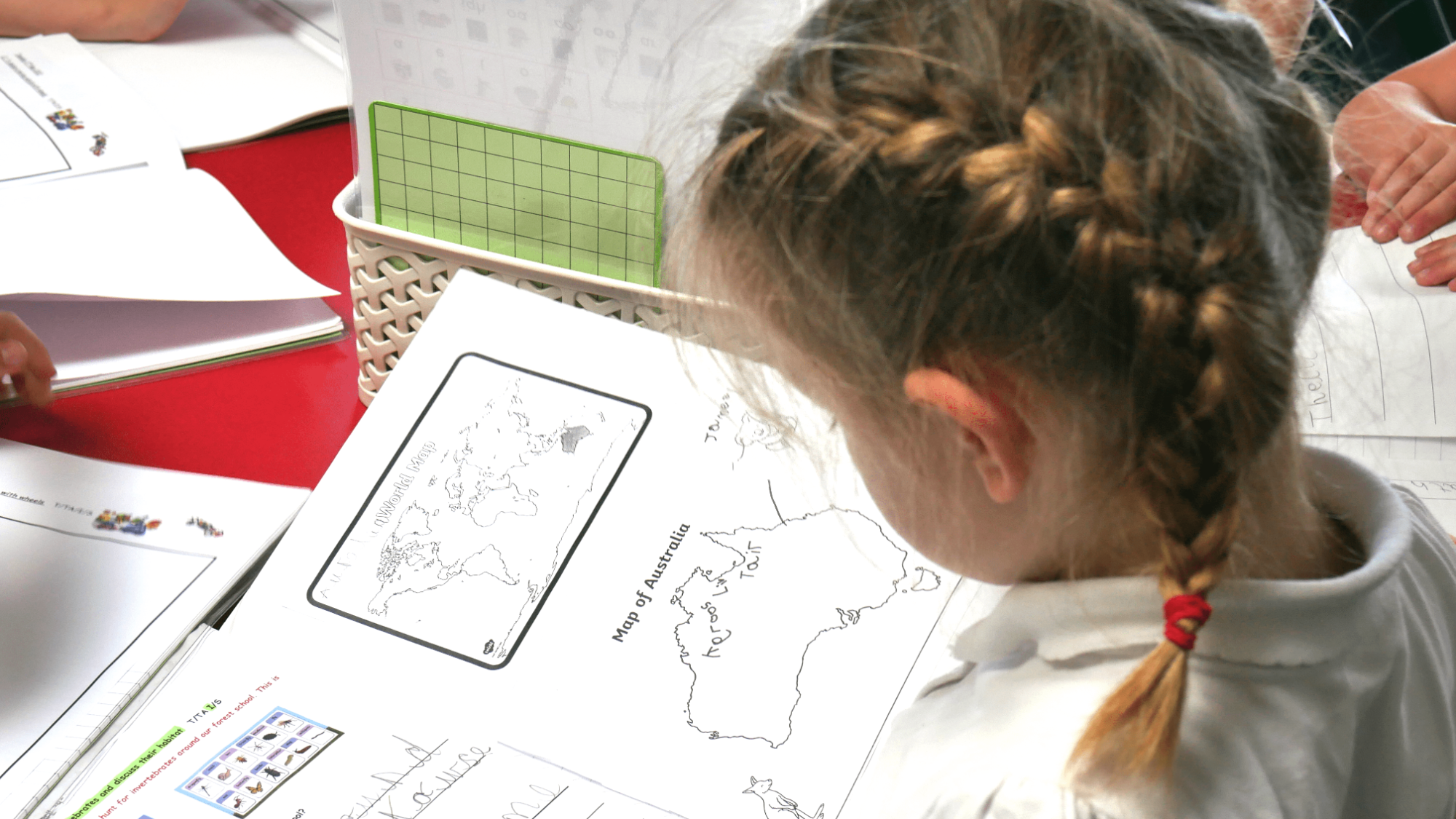
Implementation
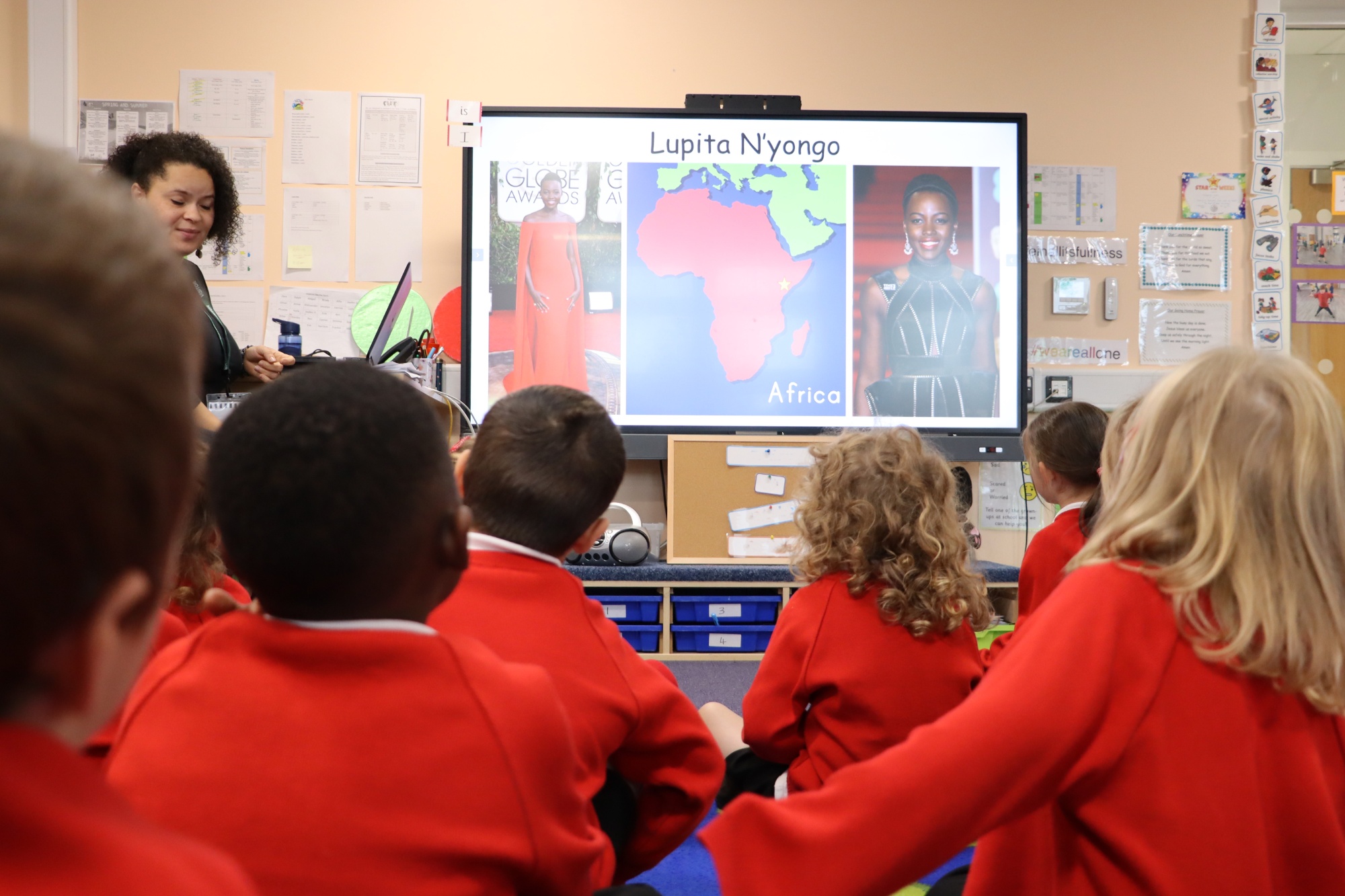
As part of our cross-curricular approach, some of our ‘themes’ taught will have a strong Geographical focus and will be taught with links to other areas of learning.
Each unit of learning will be planned based on key Geographical skills that we aim to develop throughout the child’s Geography learning journey. The skills covered through topics of work will include:
- Collecting, analysing, and communicating with a range of data gathered through experiences of outdoor learning
- Interpreting a range of sources of geographical information, including maps, diagrams, globes, and satellite images
All year groups will start with map skills, to ensure this knowledge and understanding is deepening as they progress through Saint George’s Primary and Secondary Phases. Teachers have identified the key knowledge and skills of each topic, in liaison with secondary subject leaders, and consideration has been given to ensure progression across topics throughout each year group. By the end of year six, children will have a breadth of knowledge about key aspects of geography, relating to humans or the physical. They will be able to draw comparisons and make connections between different cultures/settlements and their own locality and country. Planning is informed by both the National Curriculum and Quigley’s Essentials Curriculum. Outcomes of work are regularly monitored to ensure that they reflect a sound understanding of the key identified knowledge. The Early Years Foundation Stage (EYFS) aims for all children in reception to have an ‘Understanding of the World’ including ‘The Natural World’ by the end of the academic year. Enrichment days are planned to enhance children’s geographical understanding and immerse them in the subject and may be held by individual classes or as a whole primary phase.
Impact
Children are encouraged to reflect on what they have learnt throughout Geography learning and how it relates to human or physical Geography (especially the opportunity to use maps, historically or in relation to the modern world). This enhances their abilities to sift through information and form their own judgements, improve understanding and form opinions.
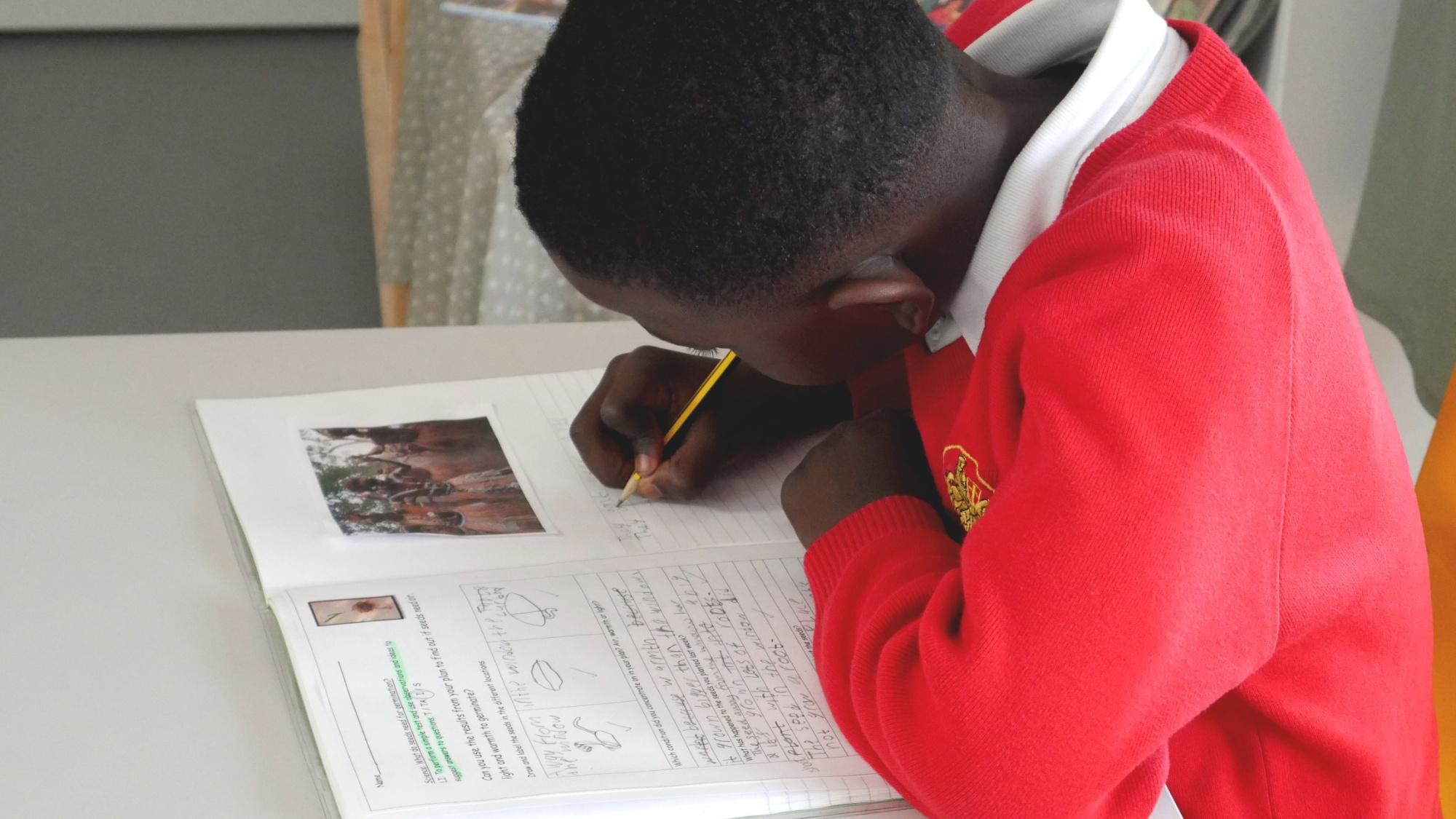
Geography at Early Years Foundation Stage (EYFS)
Geography is about people, places and the world around us. Children see Geography each day as they learn to make sense of the world and move about within it.
Aspects of Geography appear within the Area of Learning called Understanding the World in the Early Years Foundation Stage. We are fortunate that our school is in a rich environment with many diverse geographical features within a short walk.
In EYFS the children learn about their immediate locality, so they learn about places around our school and grounds. They learn about familiar features such as houses, farms, and shops building on their everyday experiences. They will encounter distant places through topics and stories. The children observe and discuss the weather regularly during EYFS, becoming familiar with types of weather and how it can affect us such as needing coats when it is cold. The children also learn about the different jobs which people do in our community.
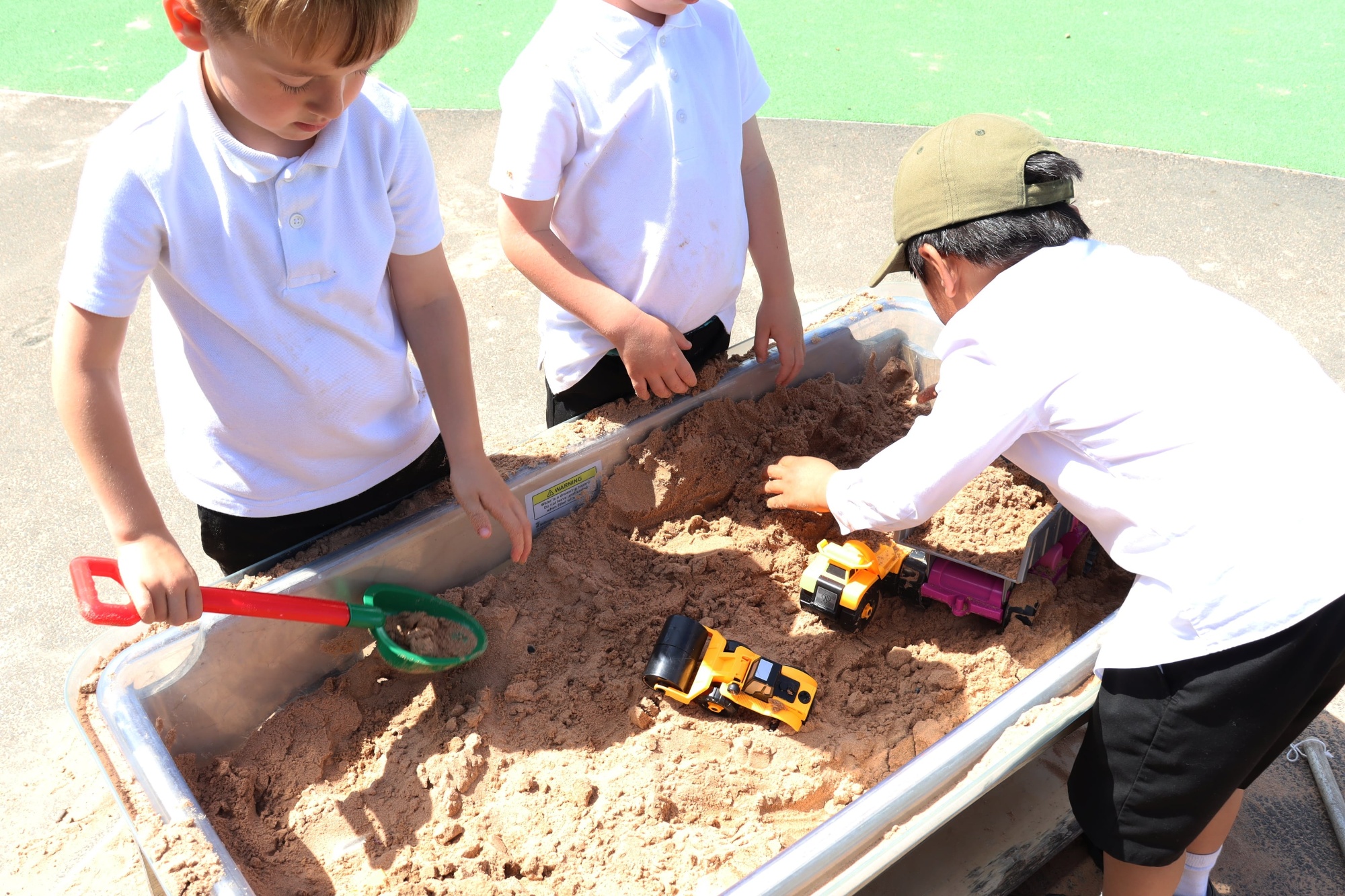
Geography at Key Stage 1 (KS1)
Pupils should develop knowledge about the world, the United Kingdom and their locality. They should understand basic subject-specific vocabulary relating to human and physical geography and begin to use geographical skills, including first-hand observation, to enhance their location awareness.
Pupils should be taught to:
Locational knowledge
- Name and locate the world’s seven continents and five oceans.
- Name, locate and identify characteristics of the four countries and capital cities of the United Kingdom and its surrounding seas.
Place knowledge
- Understand geographical similarities and differences through studying the human and physical geography of a small area of the United Kingdom, and of a small area in a contrasting non-European country.
Human and Physical Geography
- Identify seasonal and daily weather patterns in the United Kingdom and the location of hot and cold areas of the world in relation to the Equator and the North and South
Use basic geographical vocabulary to refer to:
- Key physical features include beach, cliff, coast, forest, hill, mountain, sea, ocean, river, soil, valley, vegetation, season and weather.
- Key human features include city, town, village, factory, farm, house, office, port, harbour and shop.
Geographical skills and fieldwork
- Use world maps, atlases and globes to identify the United Kingdom and its countries, as well as the countries, continents and oceans studied at this key stage
- Use simple compass directions (North, South, East and West) and locational and directional language [for example, near and far; left and right], to describe the location of features and routes on a map
- Use aerial photographs and plan perspectives to recognise landmarks and basic human and physical features; devise a simple map; and use and construct basic symbols in a key
- Use simple fieldwork and observational skills to study the geography of their school and its grounds and the key human and physical features of its surrounding environment.
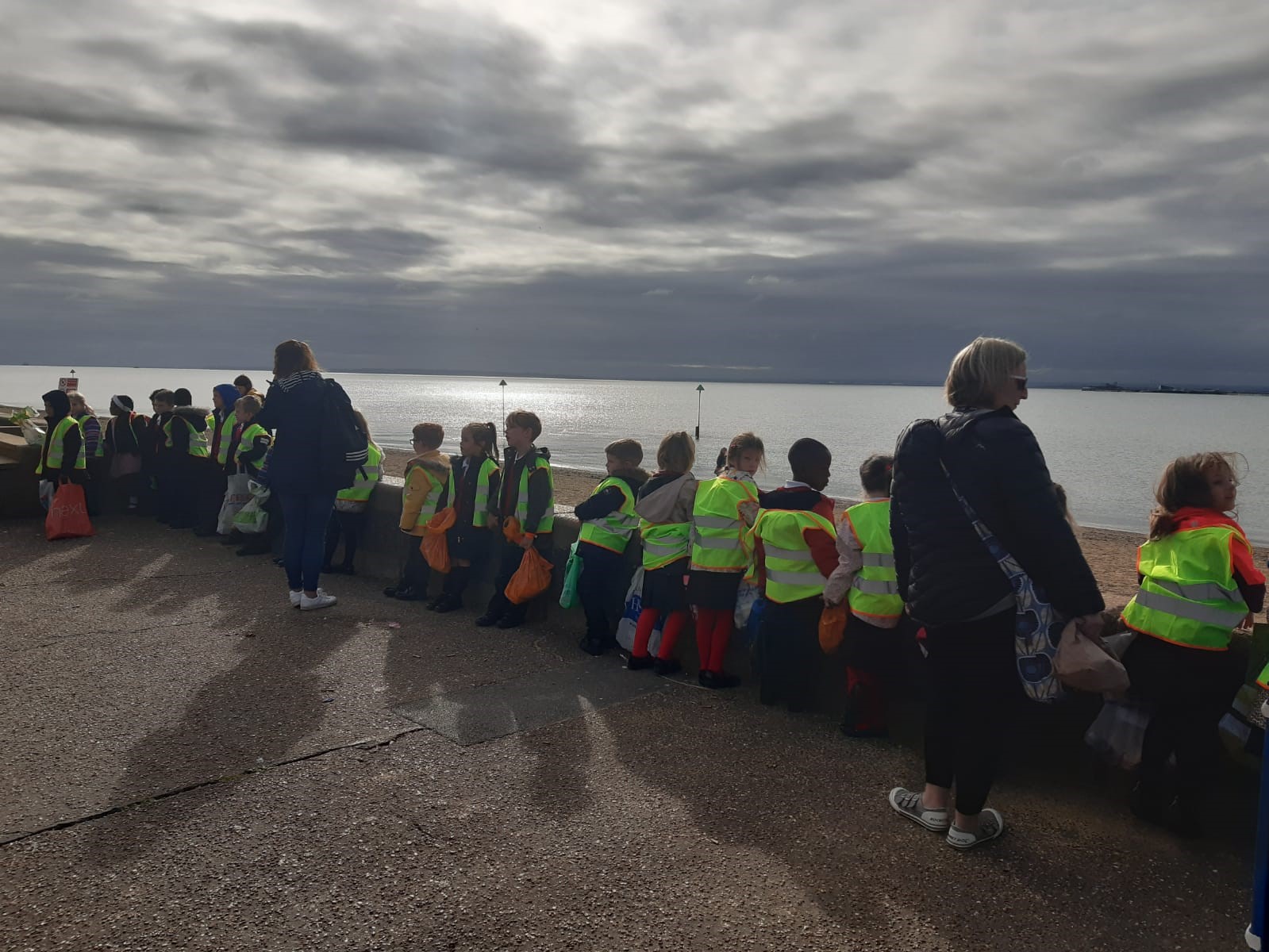
Programme of Study
| Terms | Topics |
|---|---|
|
Term 1 & 2 |
Mapping the World (Week 1) Continents and Oceans (Weeks 2 & 3) The United Kingdom (Weeks 8, 9 & 10) |
|
Term 3 & 4 |
Capital Cities of The United Kingdom (Week 1, 2 & 3) Climate and Weather (Weeks 8, 9 & 10) |
|
Term 5 & 6 |
Australia |
Geography at Key Stage 2 (KS2)
Pupils should extend their knowledge and understanding beyond the local area to include the United Kingdom and Europe, North and South America. This will include the location and characteristics of a range of the world’s most significant human and physical features. They should develop their use of geographical knowledge, understanding and skills to enhance their locational and place knowledge.
Pupils should be taught to:
Locational Knowledge
- Locate the world’s countries, using maps to focus on Europe (including the location of Russia) and North and South America, concentrating on their environmental regions, key physical and human characteristics, countries, and major cities
- Name and locate counties and cities of the United Kingdom, geographical regions and their identifying human and physical characteristics, key topographical features (including hills, mountains, coasts and rivers), and land-use patterns; and understand how some of these aspects have changed over time
- Identify the position and significance of latitude, longitude, Equator, Northern Hemisphere, Southern Hemisphere, the Tropics of Cancer and Capricorn, Arctic and Antarctic Circle, the Prime/Greenwich Meridian and time zones (including day and night)
Place Knowledge
- Understand geographical similarities and differences through the study of human and physical geography of a region of the United Kingdom, a region in a European country, and a region within North or South America
Human and Physical Geography
Describe and understand key aspects of:
- Physical geography, including: climate zones, biomes and vegetation belts, rivers, mountains, volcanoes and earthquakes, and the water cycle
- Human geography, including: types of settlement and land use, economic activity including trade links and the distribution of natural resources including energy, food, minerals and water
Geographical skills and fieldwork
- Use maps, atlases, globes and digital/computer mapping to locate countries and describe features studied
- Use the eight points of a compass, four and six-figure grid references, symbols and key (including the use of Ordnance Survey maps) to build their knowledge of the United Kingdom and the wider world
- Use fieldwork to observe, measure, record and present the human and physical features in the local area using a range of methods, including sketch maps, plans and graphs, and digital technologies.
Programme of Study
| Terms | Topics |
|---|---|
|
Term 1 & 2 |
Maps of the World (Weeks 1, 2 & 3) Rivers & Mountains inc. The Water Cycle (Weeks 7, 8 & 9) |
|
Term 3 & 4 |
Europe (Weeks 1, 2 & 3) Erosion and Deposition (Weeks 7, 8 & 9) |
|
Term 5 & 6 |
Earthquakes & Volcanoes (Weeks 1, 2 & 3) Climate Change (Weeks 7, 8 & 9) |
Progression
We develop our pupil’s Geography understanding through essential skills; growing their depth of knowledge year after year. We are able to monitor their progress and allocate extra support and adaptations to the curriculum for pupils to maintain a strong Geography education.
SEND Information
We ensure that SEND and disadvantaged children are given the necessary support in class to fully access the Geography Curriculum and equal opportunities are given for all to be confident in approaching any problem within the world around them.
Extra Resources
Further Geography Help
Fun Geography Games

